Skims Scores Worse Than Shein on Fashion Accountability Report
Skims got a zero, placing it in league with ultra-fast fashion giants Fashion Nova, Missguided, and Temu.
Join Back Row’s live Oscars red carpet chat for paid subscribers this Sunday night! I’ll kick things off around 6:30 ET, after a quorum of outfits have trickled out. Will Sandra Hüller wear Phoebe Philo? Will Margot Robbie have to wear something from the new Chanel collection? What can Emma Stone possibly gin up from the Louis Vuitton rack? To join the fun, upgrade your subscription.
In this issue of Back Row:
How Skims ended up scoring a zero in Remake’s new 2024 Fashion Accountability Report, fulfilling Back Row’s prediction that it would face heightened scrutiny as a rumored IPO looms.
Other highlights from the report, including how luxury brands like Chanel fared (spoiler alert: poorly).
Loose Threads, including the wedding Rihanna performed at, Phoebe Philo’s latest drop, and more.
Before the nonprofit Remake published anything to its website about Kim Kardashian’s Skims clothing brand, it reached out to the company. Remake assesses apparel companies’ operations — do they make and meet carbon emissions targets? Do they pay and treat garment workers fairly? Are diverse leaders making decisions at the company?
In early 2023, Remake first contacted Skims because it would be included in a now-defunct brand directory. Skims put Remake in touch with a hired public relations firm, which sent over information about “random charitable initiatives that the company was part of,” recalled Remake Senior Manager of Advocacy Becca Coughlan.
The organization reached out again when it was working on its 2024 Fashion Accountability Report, which came out this week and assigned scores to 52 apparel companies to assess how transparent and ethical their manufacturing is. Remake looked at a range of categories, including traceability, wages and wellbeing, and environmental justice.
Skims, which is valued at $4 billion, was being included in this report for the first time. As it does all companies analyzed, Remake gave Skims the chance to share information with them about their operations in order to make the fairest possible assessment. Once a score is assigned, Remake shares their findings with the company and gives them a chance to share additional information that might increase it. While Remake received cooperation from 24 of the 52 companies assessed, including Shein, LVMH, Victoria’s Secret, and Everlane, Skims was among the 28 companies that did not engage at all.
So Remake awarded Skims a zero, placing it in league with ultra-fast fashion giants Fashion Nova, Missguided, and Temu.
“A zero is indicative that this is not high on the company's list of priorities, human rights or environmental sustainability. And that questions need to be asked,” said Coughlan.
Back Row is a fully reader-supported publication. To support the independent journalism you read here, consider becoming a free or paid subscriber.
Coming in at the top was Everlane with 40 points, though Remake notes the highest possible score is 150, and no brand assessed came close. That said, the companies at the top of the list have demonstrated that they are making ethical manufacturing a priority. Small fashion companies are not assessed because they don’t have the resources to do things like track their emissions — but as Remake sees it, the bigger companies have no excuse.
The report scores companies on progress, not merely having goals, which helps explain why the scores are so low for all of them. It also assesses transparency. “If a company scores zero for not having a supplier code of conduct in the public domain, that's not to say that they don't have a supplier code of conduct. Most likely they do — it's 2024, it's somewhere — but it's not in the public domain, and so you're not going to get any points for it,” explained Coughlan.
Skims claims on the FAQ page of its website to be “commit[ed] to sustainability, accountability and transparency.”
The company has already been accused of greenwashing. Greenwash.com noticed last year that the brand delivered underwear in film packaging that read “I AM NOT PLASTIC,” yet bore a “4” recycling logo indicative of LDPE, or low-density polyethylane — which is plastic.
“The Kardashians are almost untouchable,” said Coughlan.
But that doesn’t mean consumers will excuse them. Late last year, I noticed TikToks and Reels about Rihanna’s Savage x Fenty rating in the 2022 report making the rounds on social media. The report had come out in November of 2022, and gave Savage x Fenty four points for diverse corporate leadership but no points for anything else; the brand scored lower than Shein, which had earned eight points. (Savage X Fenty’s rating is unchanged in the 2024 report.)
Like Skims, Savage x Fenty had positioned itself as being the anti-Victoria’s Secret — inclusive in its branding and product offerings. That positioning starts to look like a pure marketing play when an organization like Remake reports the company doesn’t disclose anything about how it treats the women of color working in its factories.
The latest Remake report notes that all companies assessed scored zero in certain categories:
We’ll admit, some of our metrics are aspirational. While they seem to be common sense practices in any industry that wants to consider itself a net benefit to the world, there are criteria for which no fashion company scores a single point. Things like ensuring female garment workers themselves are represented in discussions about labor rights or climate adaptation; demonstration of progression towards textile waste elimination targets; or advancement towards paying all garment workers a living wage.
While Remake doesn’t like to put the onus on the consumer to figure out which brands are ethical, we lack legislation that would require companies to disclose how they operate. This puts us in the deeply imperfect position of being reliant on corporations to tell us what they’re doing, either because they think it’s right or because they think it will help them make more money.
I asked Coughlan what she would say to a company that didn’t care about anything other than making money about why they should worry about any of this. She pointed out that the climate crisis is so bad that it’s impacting companies’ ability to make stuff. She said, “In production countries, they're already seeing just off-the-charts heat and humidity. In the summer months, flooding — workers can't get to work. So that's killing production. And ultimately, that's going to impact the company's ability to produce and sell.”
Also notable in the report:
LVMH, which owns Louis Vuitton, Christian Dior, and many more luxury fashion brands, scored a 13, while Chanel scored a 5. “There is the misconception that just because something is from a luxury company, it's made in a beautiful atelier in Paris or Milan,” said Coughlan. “But a lot of garments made by these companies are made in similar factories to those of fast fashion brands.”
H&M came in second with a total of 37 points. This doesn’t mean that they aren’t green washers (they are) or that their environmental impact is lower than other smaller companies on the list, like Reformation, but the score reflects that the company has invested over a long period of time in assessing and reporting its impact. The company promoted Helena Helmersson to CEO after she ran sustainability efforts for a decade. Though she prioritized these in her leadership as CEO, she stepped down earlier this year, saying the job was “very demanding.” The stock dipped around the same time after disappointing results from the holiday shopping season.
The 2024 report was, unfortunately, largely in line with the previous one, meaning no great improvements had been made, and average scores held pretty much across the board.
Overproduction remains a key issue. “We can have all of the fancy sustainable materials that we want, but if production continues to increase, that's just going to nullify any progress made on an individual product impact level,” Coughlan said.
Loose Threads
Margot Robbie’s Barbie promotional tour stylist Andrew Mukamal created a book of her looks, Barbie: The World Tour. Because of the actors’ strike, not all of the looks they had selected walked a carpet. Quothe Robbie: “We were like ‘Oh, that’s so sad.' But then Andrew found a way for them to have their moment.” [Vogue]
Phoebe Philo released another collection, two days after Paris Fashion Week ended. Oscar-nominated Sandra Hüller, who stars in Anatomy of a Fall, appears in the ads. Philo operates in her own league as a designer, but her strategy of dropping collections without big silly fashion shows could be a new model for the industry. If you have $1,900 to spare, perhaps you’ll grab the wildly fun fringed mules, which sort of just look like frilly hooves. [Phoebe Philo]
Did anyone with a passing glance at social media this past week fail to notice that Rihanna performed at a pre-wedding weekend in India? Anant Ambani, son of India’s richest man and the ninth richest person in the world, celebrated with bride Radhika Merchant before more than 1,500 guests, including Mark Zuckerberg, Bill Gates, and Karlie Kloss. Vogue Weddings has 66 photos of the event (bless). From the story: “Little did [the couple] know Radhika’s mother-in-law and Malhotra had constructed a glass palace evoking the Palm House in the Brooklyn Botanic Garden — a favorite place of the bride’s when she was a college student in New York City — adorned in flowers from Jeff Leatham. A mini train transported the guests throughout. After dinner, 5,500 drones took to the sky to tell the story of Vantara, becoming India’s largest drone show ever in the process.” [Vogue]
The amount of excess inventory fashion companies find themselves with these days is truly staggering. LVMH and Kering end up with billions’ of dollars worth of unsold merchandise each year. Though companies used to slash and burn this stuff rather than discount it, regulations prohibit this, so companies are trying to recycle it. [Business of Fashion]
Meghan Markle and Prince Harry are in my hometown, Austin, Texas, for SXSW, where she’s appearing on a panel. They had a date at Soho House, which “has a special place in their hearts.” [Page Six]
Yes, the same Soho House that’s reportedly heading toward bankruptcy. At least they can still afford publicists. [Yahoo]
Back Row is a fully reader-supported publication. To support the independent journalism you read here, consider becoming a free or paid subscriber.



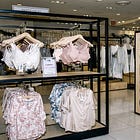
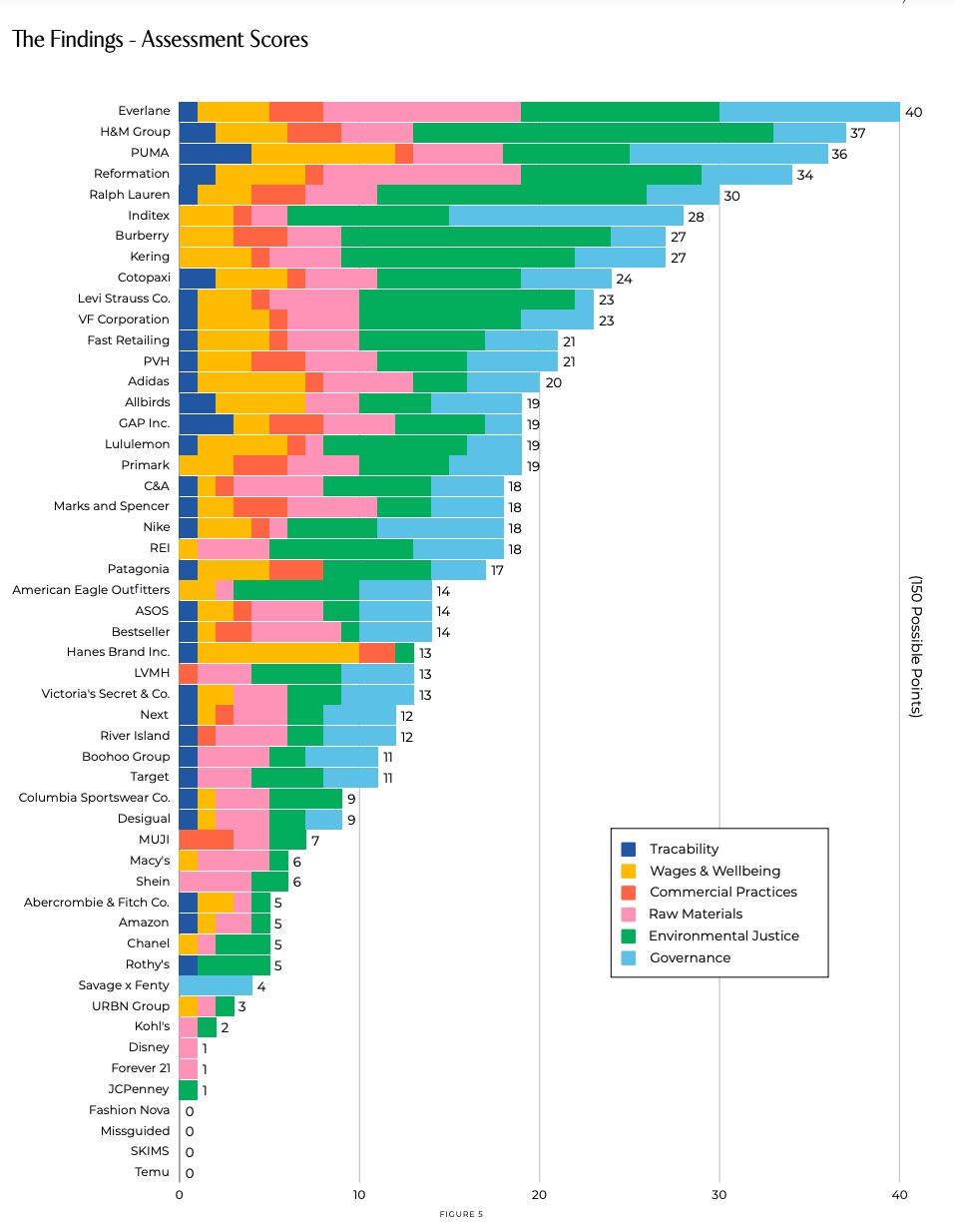
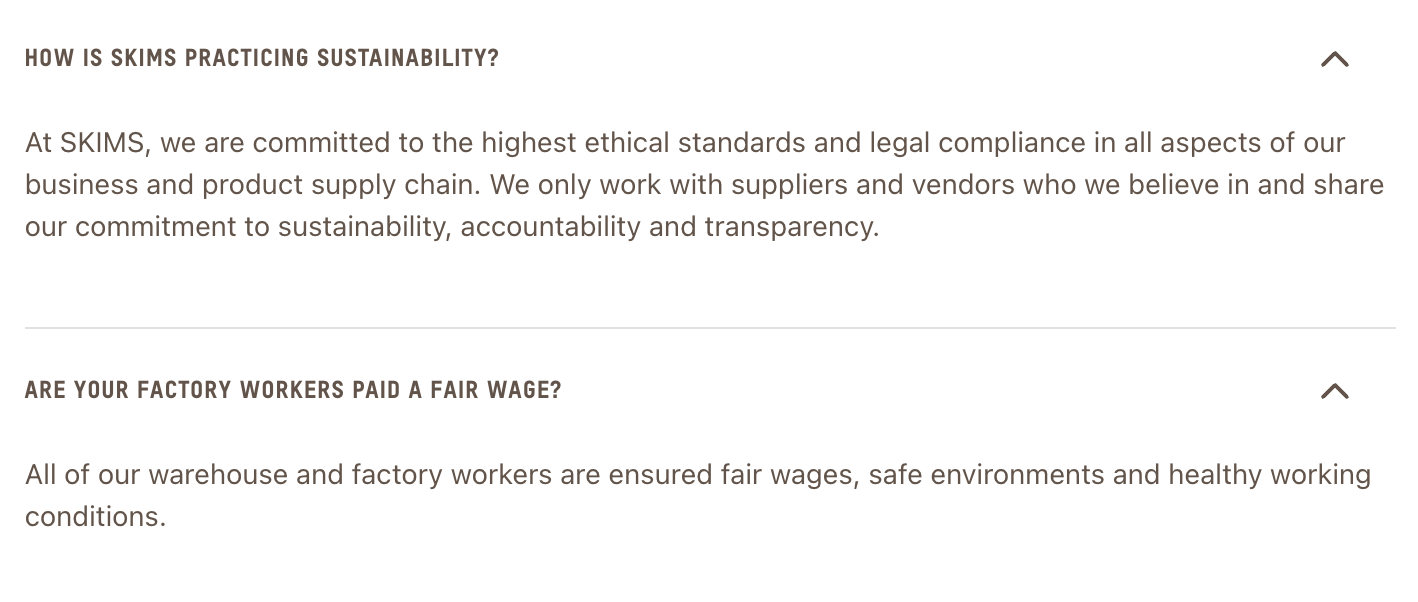
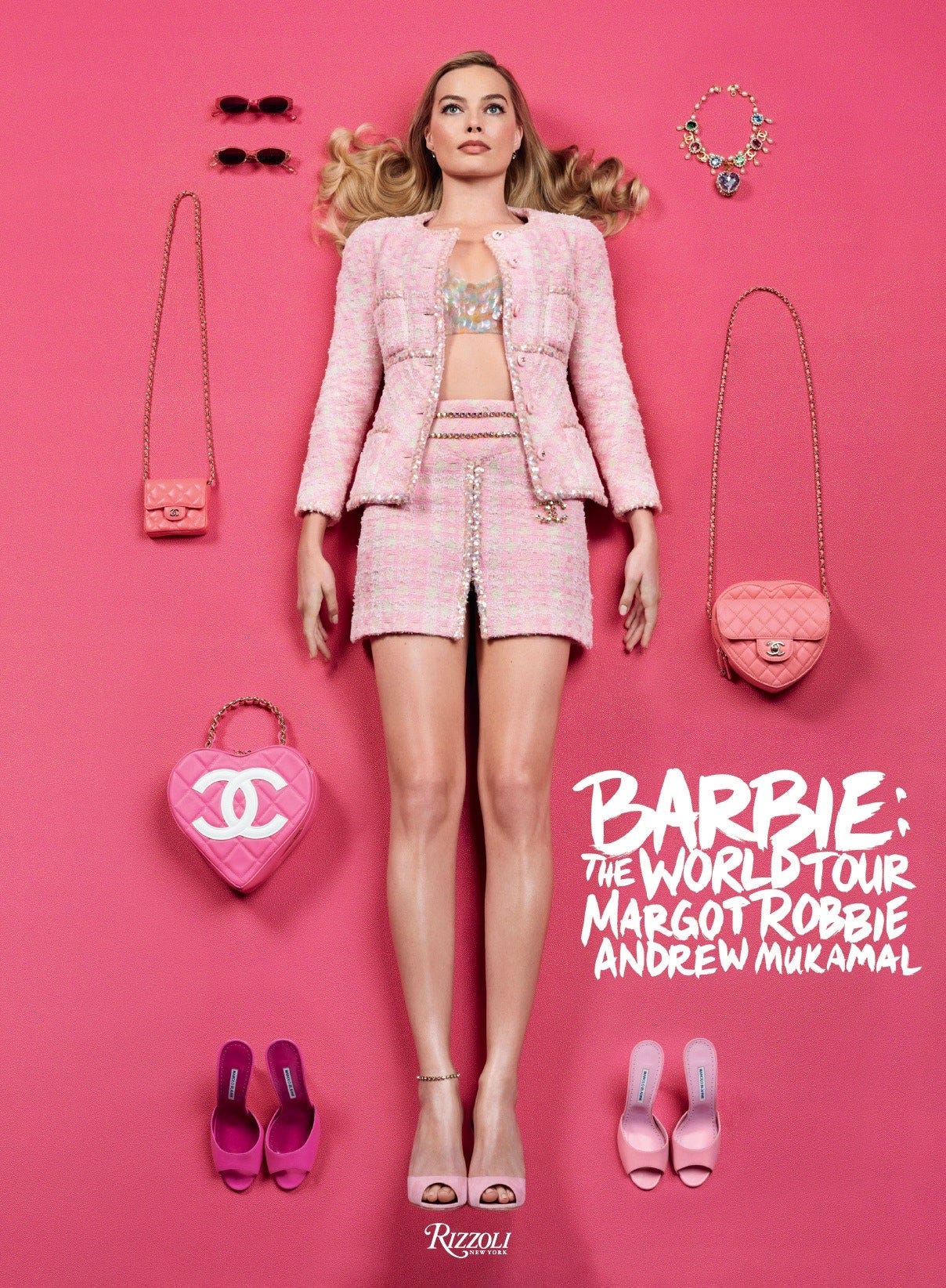


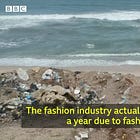
Why don’t fashion houses and stores do a preview of what is coming/ Follow up with a presale. If something is going to be a blow-out they get an inside note on how much they are selling. They can either upscale on close out an item at a certain quantity. To further their sales have a sales force dedicated to mid-range products. Even better service comes when you move from mid-range, to high end. There can be some items for everyone, but general public gets a certain level of customer care to make long term relationships. Also don’t do influencers, find people who are admirable for choices, community engagement. I was over influencers before they were a thing.
If current ways of selling no longer works, find a new way or inventiveness to entice customers. Right now, in the USA, we are in an economic crunch. Grocery bills are out of sight, we are thrift buying, and trying to stay ahead of our rent payments. It is really tough. We also have a horrendous election in November, and we are scrapping the bottom of the barrel as far as candidates.
Wow. Remake's report is more than a little jaw-dropping. Best that a fashion house can do is less than 1/3 of the total points available. This further underscores the environmental/social/governance hot mess that is the fashion industry. Juxtapose this against the obscene excess just demonstrated at runway shows during Fashion Month, and it's like the brands A) don't get it and B) don't care.